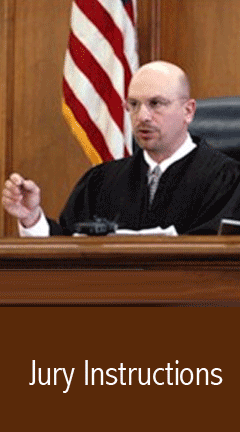Archival Notice
This is an archive page that is no longer being updated. It may contain outdated information and links may no longer function as originally intended.
Home | Glossary | Resources | Help | Course Map
Jurors will be instructed on how to receive and evaluate an expert's testimony. A typical instruction will explain that an expert is not restricted to testifying about facts for which the witness has personal knowledge, and that the expert may express an opinion.
At the same time, jurors are reminded that an expert is like any other witness, with no special "badge" or presumption of credibility. Jurors are expected to evaluate the expert like they would any other witness. Jurors are typically instructed that they are free to accept all, some or none of the expert's proffered testimony.
Federal court jury instructions advise juries concerning expert witnesses as follows:
The rules of evidence ordinarily do not permit witnesses to testify as to opinions or conclusions. An exception to this rule exists as to those whom we call "expert witnesses." Witnesses who, by education and experience, have become expert in some art, science, profession, or calling, may state an opinion as to relevant and material matter, in which they profess to be expert, and may also state their reasons for the opinion.
You should consider each expert opinion received as evidence in this case and give it such weight as you may think it deserves. If you should decide that the opinion of an expert witness is not based upon sufficient education and experience, or if you should conclude that the reasons given in support of the opinion are not sound, or that the opinion is outweighed by other evidence, you may disregard the opinion entirely.
(Source: Devitt and Blackmar, Federal Jury Practice and Instructions, 3rd ed., Vol. 1, St. Paul, Minn.: West Publishing Company, 1977, §15.22, p. 482.)
Many state courts offer a similar typical expert witness jury instruction:
You have heard evidence in this case from witnesses who testified as experts. The law allows an expert to express opinions on subjects involving their special knowledge, training, skill, experience or research. You shall determine what weight, if any, should be given such testimony, as with any other witness.


